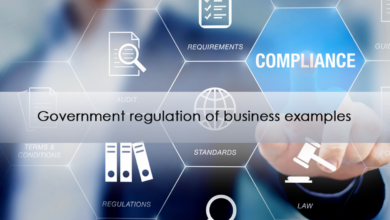Latest Developments in Government Technology and Innovation
Discover the latest developments in government technology and innovation, transforming public services and enhancing efficiency in 2024.

Governments all throughout the world are leading the way in adopting cutting-edge technologies to transform governance and public services in the rapidly evolving digital era. Incorporating cutting-edge technologies like artificial intelligence (AI), blockchain, and big data analytics is not just a fad; it is a strategic necessity to improve transparency, citizen participation, and operational efficiency. These changes represent a sea change in the direction of more intelligent, responsive administration, where innovation is essential to solving difficult societal issues and satisfying the changing demands of the populace.
Smart city projects, open data regulations, and cybersecurity measures are examples of Government Technology efforts that demonstrate a commitment to using technology for equitable and sustainable growth while navigating the challenges of the digital transformation. Government technology is changing quickly as a result of a constant search for ways to improve service delivery and increase efficiency. This article explores the most recent developments, obstacles, and opportunities in government technology, highlighting the revolutionary potential of these inventions on a worldwide level.
TABLE OF CONTENTS
Toggle“Latest Developments in Government Technology and Innovation
Digital transformation is revolutionizing how governments interact with citizens and manage internal operations. Countries such as Estonia and Singapore have pioneered digital Government Technology services, allowing citizens to access services online seamlessly. This shift not only improves efficiency but also enhances citizen satisfaction and reduces bureaucratic hurdles.
Case studies of successful digital transformation projects
One notable example is Estonia’s e-Estonia initiative, which provides citizens with digital identities for secure access to various government services. This integrated approach has significantly streamlined administrative processes, making Estonia a global leader in digital governance.
Benefits of digitalization in government services
Digitalization enables governments to deliver services faster, reduce operational costs, and enhance data security. By digitizing records and processes, governments can eliminate paperwork, improve data accuracy, and ensure better compliance with regulatory requirements.
AI and Machine Learning in Public Sector Operations
Artificial Intelligence (AI) and machine learning are driving efficiency gains across various government sectors. AI-powered chatbots handle citizen inquiries, predictive analytics optimize resource allocation, and machine learning algorithms detect fraud and streamline decision-making processes.
Applications of AI and machine learning in improving efficiency
In healthcare, AI helps analyze medical data to improve patient outcomes and optimize healthcare delivery. In law enforcement, predictive policing algorithms aid in crime prevention strategies by identifying high-risk areas and patterns.
Examples of AI-driven government initiatives
The United Kingdom’s NHS uses AI to analyze medical scans and predict patient outcomes, enhancing diagnostic accuracy and reducing waiting times. Similarly, Singapore utilizes AI-powered chatbots to provide personalized citizen services, improving accessibility and responsiveness.
Blockchain Integration in Government Services
Blockchain technology offers unprecedented security and transparency in government operations, revolutionizing areas such as identity management, voting systems, and supply chain management.
-
How to Protect Your Voting Rights in New YorkApril 6, 2025
Use cases of blockchain technology in enhancing security and transparency
Countries like Georgia have implemented blockchain for land registry systems, ensuring immutable records and reducing fraud. Blockchain’s decentralized nature also enhances transparency in public procurement processes by enabling real-time auditing and accountability.
Challenges and future prospects of blockchain adoption
Despite its potential benefits, widespread blockchain adoption faces challenges such as scalability, interoperability, and regulatory concerns. Governments are exploring hybrid blockchain solutions and collaborating with industry stakeholders to overcome these barriers.
Big Data Analytics for Policy Making
Big data analytics empowers governments to make informed policy decisions by analyzing large datasets to identify trends, forecast outcomes, and evaluate the impact of policies on citizens’ lives.
Role of big data analytics in shaping government policies
Governments leverage data analytics to optimize public services, improve infrastructure planning, and respond proactively to social and economic trends. For instance, data-driven insights help optimize traffic flow in smart cities and predict healthcare resource demands.
Real-world examples of data-driven policy decisions
New York City uses data analytics to reduce crime rates by deploying police resources more effectively based on crime hotspots and historical data. Similarly, Denmark utilizes data to optimize energy consumption and promote sustainable development goals.
Cybersecurity Measures in Government IT
With the increasing digitization of government services, cybersecurity has become paramount in safeguarding sensitive data and protecting against cyber threats.
Importance of cybersecurity in protecting sensitive government data
Government agencies store vast amounts of sensitive information, including citizen records and national security data, making them prime targets for cyber attacks. Robust cybersecurity measures are essential to prevent data breaches and maintain public trust.
Strategies and technologies used to combat cyber threats
Governments employ advanced cybersecurity frameworks, encryption technologies, and continuous monitoring systems to detect and mitigate cyber threats proactively. Public-private partnerships also play a crucial role in sharing threat intelligence and enhancing cyber resilience.
Cloud Computing and Government Infrastructure
Cloud computing offers governments scalable and cost-effective solutions for storing data, hosting applications, and delivering services to citizens securely and efficiently.
Advantages of cloud adoption for government operations
Cloud platforms enable governments to scale IT resources on-demand, reduce infrastructure costs, and improve accessibility to services. Cloud-based collaboration tools also enhance inter-agency communication and productivity.
Risks and considerations in migrating to cloud-based services
While cloud computing offers numerous benefits, governments must address concerns related to data sovereignty, compliance with regulatory requirements, and cybersecurity risks. Adopting hybrid cloud models and implementing robust governance frameworks can mitigate these challenges effectively.
Open Data Initiatives and Transparency
Open data initiatives promote transparency, accountability, and citizen engagement by making government data accessible and usable for public benefit.
Benefits of open data policies for citizen engagement
Open data initiatives enable citizens, businesses, and researchers to access government datasets, fostering innovation, and empowering informed decision-making. Open data platforms also support civic participation and accountability in governance.
Challenges in implementing open data frameworks
Government Technology face challenges such as data privacy concerns, data quality assurance, and the need for interoperability across different data sources. Addressing these challenges requires standardized data formats, clear licensing frameworks, and collaboration with stakeholders.
Smart Cities and Sustainable Development Goals
Smart city initiatives leverage IoT, data analytics, and connectivity solutions to enhance urban living standards, promote sustainability, and achieve environmental goals.
Role of technology in building smart and sustainable cities
Technologies like IoT sensors monitor air quality, optimize energy consumption, and manage traffic flow, contributing to environmental sustainability and improving citizens’ quality of life. Smart city frameworks also prioritize inclusive urban development and equitable access to services.
Examples of smart city projects and their impact
Barcelona’s smart city initiatives focus on reducing energy consumption, enhancing public transportation efficiency, and integrating renewable energy sources. These efforts contribute to achieving carbon neutrality targets and promoting sustainable urban growth.
Future Trends in Government Technology
Looking ahead, emerging Government Technology such as quantum computing, 5G networks, and autonomous systems are poised to revolutionize government operations and service delivery in the coming decade.
Predictions for the next decade in government tech innovations
Government Technology will increasingly leverage quantum computing’s computing power to solve complex problems in cryptography, optimization, and simulation. 5G networks will enable faster data transmission, support IoT proliferation, and enhance connectivity for smart city applications.
Emerging technologies likely to reshape public sector operations
Autonomous systems, including drones and self-driving vehicles, will transform service delivery in areas such as transportation, emergency response, and logistics. Government Technology will adopt AI-driven autonomous decision-making systems to streamline administrative processes and improve service delivery efficiency.
Read More: Breaking: Major Supreme Court Rulings of 2024 and Their Implications
Conclusion
Government Technology most recent innovations advancements in government portend a new era of efficient, transparent, and citizen-centric governance. The potential for revolutionary change increases dramatically as governments continue to incorporate AI, blockchain, big data analytics, and other cutting-edge technologies into their daily operations. These innovations boost citizen empowerment by streamlining bureaucratic procedures and enabling data-driven decision-making and enhanced service accessibility.
Going forward, utilising developing technology in a responsible and cooperative manner will lead to sustainable development and equitable progress. To guarantee that innovation serves the public good, Government Technology must overcome obstacles like cybersecurity dangers, data privacy concerns, and the equal distribution of technology advantages. Countries can set the stage for a future in which technology improves civic involvement, promotes economic prosperity, and successfully solves urgent global concerns by adopting a culture of constant innovation and adaptive government.
FAQs
What are some challenges governments face in adopting blockchain technology?
Governments often grapple with scalability issues, regulatory complexities, and establishing trust among stakeholders when implementing blockchain solutions.
How does AI improve Government Technology services?
AI enhances efficiency by automating repetitive tasks, optimizing resource allocation, and enabling data-driven decision-making in public sector operations.
What are the benefits of open data initiatives for citizens?
Open data initiatives promote transparency, empower citizens with access to Government Technology, and foster innovation by enabling data-driven insights.
Why is cybersecurity crucial in government IT systems?
Cybersecurity safeguards sensitive Government Technology data from cyber threats, ensuring data integrity, confidentiality, and maintaining public trust in government services.
What role do smart city initiatives play in urban development?
Smart city projects leverage technology to enhance urban sustainability, improve infrastructure efficiency, and provide citizens with smarter, more livable urban environments.











